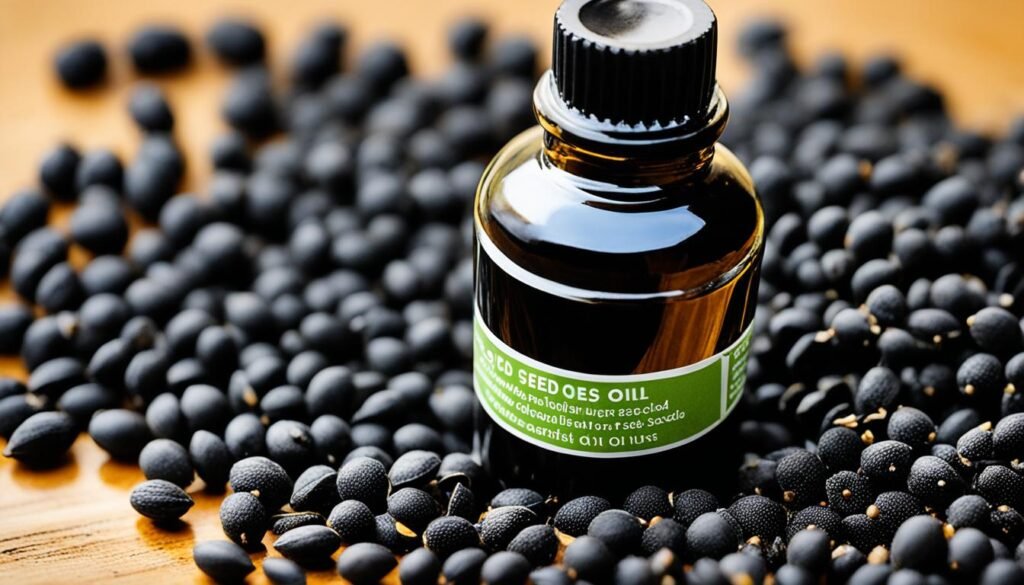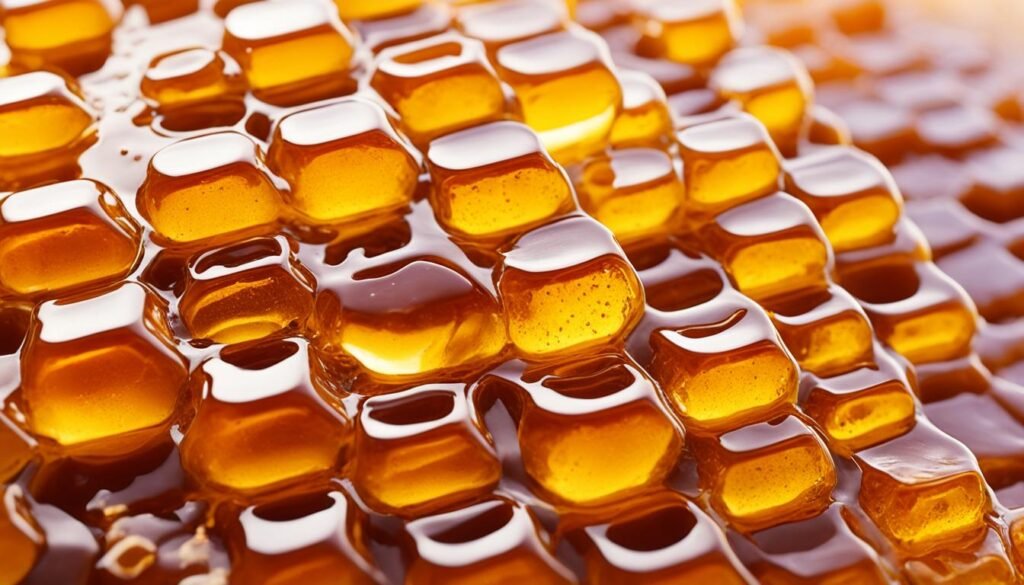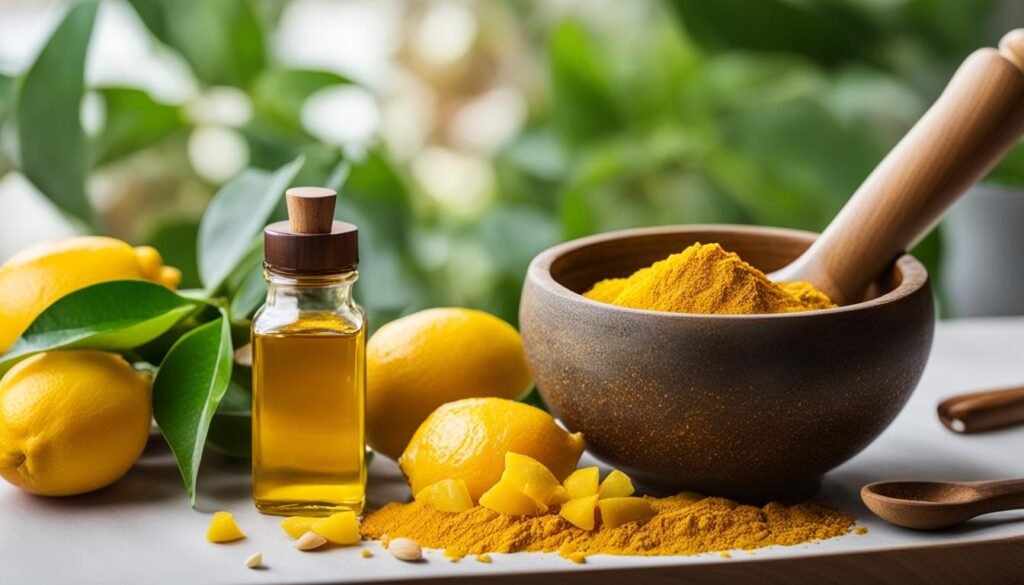Are you tired of battling with stubborn acne scars? Looking for natural remedies that can help fade them away? Look no further! In this article, we’ll explore effective home treatments for acne scars that you can easily try at home. Say goodbye to expensive creams and lotions, and discover the power of natural remedies to heal your skin and reduce acne scars.
Acne scars can be a source of frustration and self-consciousness. These scars not only affect our physical appearance but also impact our self-esteem. Fortunately, there are several natural remedies that can help fade acne scars and promote healing of the skin. From black seed oil to rosehip seed oil, honey, and aloe vera, we’ll explore the benefits of these DIY remedies and how they can effectively reduce the appearance of acne scars.
But that’s not all! We’ll also delve into understanding the different types of acne scars and how they can influence your choice of home remedies. Plus, we’ll uncover the benefits of natural remedies, including their affordability, safety, and minimal side effects compared to professional treatments.
So, are you ready to discover the best home remedies for acne scars? Let’s dive in and transform your skincare routine with the power of nature!
Key Takeaways:
- Acne scars can be effectively faded with natural home remedies.
- Black seed oil, rosehip seed oil, honey, and aloe vera are powerful ingredients for treating acne scars.
- Understanding the types of acne scars can help in choosing the right home remedies.
- Natural remedies are affordable, safe, and have minimal side effects.
- Professional treatments may be necessary for severe scarring.
Understanding Acne Scars and Their Types
Acne scars are the result of the skin’s healing process after an acne breakout. It’s important to understand the different types of acne scars in order to choose the appropriate home remedies for treatment.
Types of Acne Scars
There are three main types of acne scars:
- Atrophic Scars: These scars appear as depressions or pits on the skin. They occur when there is a loss of tissue during the healing process.
- Hypertrophic Scars: Unlike atrophic scars, hypertrophic scars are raised and formed due to excess collagen production. They often appear as thick, raised bumps on the skin.
- Keloid Scars: Keloid scars are similar to hypertrophic scars but extend beyond the original acne site. They are more common in people with darker skin tones.
Understanding the types of acne scars can help you determine the most effective home remedies for fading their appearance.
Black Seed Oil for Acne Scars
Black seed oil, also known as Nigella sativa, is a natural remedy that has gained popularity for its potential benefits in treating acne scars. This oil is derived from the seeds of the Nigella sativa plant, which is native to Southwest Asia. It has been used for centuries in traditional medicine for its antibacterial and anti-inflammatory properties.
One of the key benefits of black seed oil is its ability to promote wound healing. It can speed up the healing process and reduce the appearance of scars. The antibacterial properties of black seed oil help prevent infection, allowing the skin to heal more effectively.
In addition to its wound healing properties, black seed oil can also help even out pigmentation. Acne scars often result in uneven skin tone and dark spots. By applying black seed oil topically, it can help reduce pigmentation and promote even skin tone.
Furthermore, black seed oil has anti-inflammatory properties, which can help calm the skin and reduce redness associated with acne scars. By reducing inflammation, it can minimize the visibility of scars and promote a smoother complexion.
Another advantage of using black seed oil for acne scars is its potential to prevent future breakouts. The oil contains compounds that can help regulate sebum production, preventing excess oil buildup that can lead to acne. By keeping the skin clean and balanced, black seed oil can help minimize the occurrence of new acne breakouts.
When using black seed oil for acne scars, it is important to apply it directly to the affected areas. Gently massage a few drops of the oil onto clean skin and leave it on overnight. Consistent use over time can help fade the appearance of acne scars and improve the overall health of the skin.
It is worth noting that while black seed oil can be effective for some individuals, results may vary. It is always recommended to do a patch test before applying any new product to the skin and consult with a dermatologist if you have any underlying skin conditions or concerns.
Benefits of Black Seed Oil for Acne Scars:
- Antibacterial properties
- Anti-inflammatory properties
- Promotes wound healing
- Reduces pigmentation
- Helps prevent acne breakouts
Overall, black seed oil is a natural remedy that shows promise in fading acne scars. Its antibacterial, anti-inflammatory, wound healing, and pigment-evening properties make it a versatile option for those seeking to improve the appearance of their skin. Incorporating black seed oil into your skincare routine may help promote healing and restore a smoother, more even complexion.
| Benefits | Properties |
|---|---|
| Antibacterial | Helps prevent infection and promote wound healing |
| Anti-inflammatory | Reduces inflammation and redness associated with acne scars |
| Pigment-evening | Helps even out skin tone and reduce dark spots |
| Acne prevention | Regulates sebum production to prevent future breakouts |

Rosehip Seed Oil for Acne Scars
Rosehip seed oil is widely marketed as a solution for aging skin, but did you know that it can also be effective in reducing the appearance of acne scars? One study found that applying rosehip seed oil twice daily helped to fade scars and discoloration, making it a promising natural remedy for acne scar treatment.
Rosehip seed oil is rich in essential fatty acids, vitamins A and C, and antioxidants, which are known to promote skin regeneration and improve the overall health of the skin. These properties make it a powerful anti-aging ingredient and also contribute to its ability to reduce acne scars.
When applied to the skin, rosehip seed oil can help to hydrate and nourish the skin, improve skin tone and texture, and fade the appearance of scars. It works by stimulating collagen production, which aids in the healing process and helps to minimize the visibility of scars. Additionally, rosehip seed oil has anti-inflammatory properties that can help reduce redness and inflammation associated with acne scars.
One of the advantages of using rosehip seed oil for acne scars is that it can be safely applied directly to the skin, making it a convenient option for home use. Simply cleanse your face, apply a few drops of rosehip seed oil to the affected areas, and gently massage it into the skin until fully absorbed. Repeat this process twice daily for best results.
It’s important to note that while rosehip seed oil can be effective in reducing the appearance of acne scars, results may vary depending on the severity of the scars and individual skin types. Consistent and long-term use is key to achieving noticeable improvements. If you’re concerned about your acne scars or have any underlying skin conditions, it’s always best to consult with a dermatologist for personalized advice and guidance.
So, if you’re looking for a natural and effective way to reduce the appearance of acne scars, consider incorporating rosehip seed oil into your skincare routine. Its anti-aging properties, ability to fade scars, and nourishing benefits make it a great option for those who want to improve the overall health and appearance of their skin.
The Benefits of Rosehip Seed Oil for Acne Scars:
- Promotes skin regeneration and improves skin health
- Hydrates and nourishes the skin
- Improves skin tone and texture
- Helps stimulate collagen production
- Reduces redness and inflammation
- Fades the appearance of acne scars
- Safe and convenient for home use
Honey for Acne Scars
Honey, a versatile natural remedy known for its medicinal properties, has been used for centuries to promote wound healing and reduce scarring. Its antibacterial properties make it an effective tool for wound clearing and cleansing, helping to prevent infections and improve the overall appearance of the skin.
When applied directly to acne scars, honey’s wound healing properties go to work, aiding in the skin’s natural repair process. The antibacterial properties of honey not only cleanse the wound but also reduce the potential for scarring.
One of the major benefits of using honey for acne scars is its ability to foster wound healing. The natural enzymes, antioxidants, and amino acids found in honey aid in tissue regeneration, helping the skin to heal and repair itself.
In addition to wound healing, honey also offers a soothing effect on the skin, reducing inflammation and redness associated with acne scars. This can help in reducing the appearance of scars and promoting a more even skin tone.
Discover the power of honey for acne scars and unlock its natural wound healing and antibacterial properties. Clear your skin, reduce scarring, and promote healthy skin regeneration with this ancient remedy.
How to Use Honey for Acne Scars
Using honey for acne scars is simple and can be done in the comfort of your own home.
- Cleanse your face thoroughly with a gentle cleanser and pat dry.
- Take a small amount of honey and apply it directly to the acne scars.
- Gently massage the honey into the skin using circular motions for a couple of minutes.
- Leave the honey on for about 20 minutes.
- Rinse off the honey with warm water and pat dry.
- Repeat this process 2-3 times a week for best results.
Pro tip: You can enhance the benefits of honey by mixing it with other natural ingredients like aloe vera gel or lemon juice.
Wound Healing and Antibacterial Properties of Honey
The wound healing properties of honey have been well-documented. Studies have shown that honey exhibits antimicrobial activity, helping to prevent infection in wounds and promote faster healing. The high sugar content of honey creates an osmotic effect, drawing out moisture from microbes and inhibiting their growth.
Furthermore, honey has been found to possess anti-inflammatory properties, reducing swelling and redness around wounds. This can help to minimize the appearance of acne scars and promote a smoother complexion.
With its natural wound healing and antibacterial properties, honey is a valuable addition to any skincare routine aiming to reduce the appearance of acne scars and promote healthier, clearer skin.

| Benefits of Honey for Acne Scars | |
|---|---|
| 1. Wound healing properties | Honey aids in tissue regeneration, promoting the healing of acne scars. |
| 2. Antibacterial properties | The antibacterial properties of honey help in cleansing wounds, reducing the potential for scarring. |
| 3. Reduced inflammation | Honey’s anti-inflammatory properties soothe the skin, minimizing redness and swelling associated with acne scars. |
| 4. Improved skin tone | Regular use of honey can lead to a more even skin tone and reduced hyperpigmentation. |
| 5. Simple and natural | Using honey for acne scars is a safe and cost-effective natural remedy that can be easily incorporated into a skincare routine. |
Aloe Vera for Acne Scars
Aloe vera is a popular natural remedy known for its soothing properties and wide range of health benefits. When it comes to acne scars, aloe vera can be incredibly helpful in promoting healing and reducing their appearance.
The soothing properties of aloe vera can help calm inflammation caused by acne breakouts, which in turn can reduce redness and irritation. By applying aloe vera gel directly to the acne scars, you can help soothe the skin and stimulate the healing process.
In addition to its soothing properties, aloe vera also has the ability to reduce the size of scar tissue. Its natural enzymes work to break down dead skin cells and promote the growth of new, healthy skin. This can lead to a reduction in the appearance of acne scars over time.
Direct Application of Aloe Vera Gel
To harness the benefits of aloe vera for acne scars, you can apply the gel directly to the affected areas. Here’s a simple step-by-step guide:
- Cleanse your face thoroughly and pat dry.
- Extract the gel from a fresh aloe vera leaf or use store-bought aloe vera gel.
- Apply a thin layer of the gel to the acne scars.
- Gently massage the gel into the skin using circular motions.
- Leave the gel on for 30 minutes to an hour.
- Rinse off with lukewarm water and pat dry.
- Repeat this process 2-3 times a day for best results.
Regular and consistent application of aloe vera gel can help fade acne scars and improve the overall texture and appearance of your skin.
Aloe vera is a natural and affordable solution for acne scars, offering soothing properties, the ability to reduce inflammation, and the power to minimize scar tissue size. Whether you choose to use fresh aloe vera gel or store-bought products, direct application can be a highly effective method in fading acne scars and achieving a smoother, more radiant complexion.
Other Home Remedies for Acne Scars
In addition to black seed oil, rosehip seed oil, honey, and aloe vera, there are several other home remedies that can help fade acne scars. These natural ingredients offer unique benefits for skin repair, hyperpigmentation reduction, redness reduction, and scar fading.
Coconut Oil
Coconut oil is known for its moisturizing properties and can effectively promote skin repair. It contains fatty acids that penetrate the skin, providing deep hydration and improving the overall texture and appearance of acne scars. Apply a small amount of coconut oil to the affected areas daily for best results.
Rosehip Seed Oil
Rosehip seed oil is a powerful ally in skin regeneration. It is rich in vitamins, antioxidants, and essential fatty acids that help to regenerate skin cells and reduce hyperpigmentation. Gently massage a few drops of rosehip seed oil into the acne scars daily to promote skin healing and fade the scars over time.
Turmeric
Turmeric is widely recognized for its anti-inflammatory properties. It can help reduce redness and inflammation associated with acne scars. Creating a turmeric paste by mixing turmeric powder with water and applying it directly to the scars can provide soothing relief and aid in the fading process.
Lemon Juice
Lemon juice is a natural exfoliant and can help fade acne scars through its acidic properties. The citric acid in lemon juice gently removes dead skin cells, promoting new cell turnover and reducing the appearance of scars. Squeeze fresh lemon juice onto a cotton pad and apply it to the scars for 10-15 minutes before rinsing off. Repeat twice a week for noticeable results.
Implementing these home remedies into your skincare routine can be a cost-effective and natural way to fade acne scars. Remember to always patch test new ingredients and consult with a dermatologist if you have any concerns or allergies.
| Home Remedy | Main Benefits | How to Use |
|---|---|---|
| Coconut Oil | Moisturizes and promotes skin repair | Apply a small amount daily to affected areas |
| Rosehip Seed Oil | Regenerates skin cells and reduces hyperpigmentation | Gently massage a few drops into acne scars daily |
| Turmeric | Anti-inflammatory properties reduce redness | Create a paste with water and apply directly to scars |
| Lemon Juice | Exfoliates and fades scars | Apply fresh lemon juice for 10-15 minutes, rinse off |
Try incorporating these remedies into your skincare routine to naturally fade acne scars and achieve smoother, more even-toned skin.
The Benefits of Natural Home Remedies for Acne Scars
When it comes to fading acne scars, natural home remedies offer a plethora of benefits. Not only are these remedies affordable, but they also provide a safe and effective alternative to commercial creams and lotions. With minimal side effects, you can try these remedies at home to take control of your skincare routine and potentially see improvements in the appearance of your acne scars.
- Affordability: Natural remedies for acne scars are often more affordable compared to expensive skincare products. Many of the ingredients can be found in your kitchen pantry or easily purchased at a local grocery store, making them a cost-effective option.
- Safety: Unlike harsh chemical treatments, natural remedies are generally safe for most skin types. These remedies typically use ingredients that are gentle and well-tolerated, minimizing the risk of adverse reactions or allergies.
- Minimal Side Effects: One of the advantages of using natural remedies is the minimal occurrence of side effects. Since these remedies mostly consist of organic ingredients, they are less likely to cause irritation or other unwanted reactions on the skin.
- Convenience: Home remedies can be easily incorporated into your daily skincare routine. With simple recipes and step-by-step instructions, you can try these remedies in the comfort of your own home, eliminating the need for expensive salon treatments.
By harnessing the power of natural ingredients, you can harness the benefits of these affordable and safe remedies to fade acne scars. Give them a try at home and see the potential improvements in your skin.
“Natural remedies for acne scars offer affordability, safety, minimal side effects, and the convenience of being able to try them at home.”
Professional Treatments for Acne Scars
While natural home remedies can be effective for fading acne scars, severe scarring may require professional treatments. Thankfully, there are several professional treatment options available that can provide more substantial and lasting results. If you’re dealing with stubborn acne scars that are impacting your confidence and self-esteem, it may be time to explore these professional treatments.
Laser therapy is one such option that can significantly reduce the appearance of acne scars. This treatment uses targeted laser technology to stimulate collagen production and resurface the skin, resulting in smoother, more evenly toned skin. Laser therapy is a minimally invasive procedure that can be tailored to your specific needs, allowing for precise targeting of scars and minimal downtime.
Another effective professional treatment option for acne scars is chemical peels. This procedure involves the application of a chemical solution to the skin, which exfoliates the top layer, revealing fresh, smoother skin underneath. Chemical peels can help improve the texture and appearance of acne scars, as well as address other skin concerns such as discoloration and fine lines.
Microneedling is also gaining popularity as a professional treatment for acne scars. This procedure involves using a device with fine needles to create tiny punctures in the skin. These controlled micro-injuries stimulate the body’s natural healing response, leading to the production of collagen and elastin. Over time, microneedling can help reduce the depth and appearance of acne scars, resulting in a smoother complexion.
When considering professional treatments for your acne scars, it’s essential to consult with a qualified dermatologist or skincare professional. They can assess your skin condition, discuss your goals, and recommend the most suitable treatment approach for you. Remember, everyone’s skin is unique, and what works for one person may not work for another. By seeking professional guidance, you can ensure that you receive personalized care and achieve the best possible outcomes.

